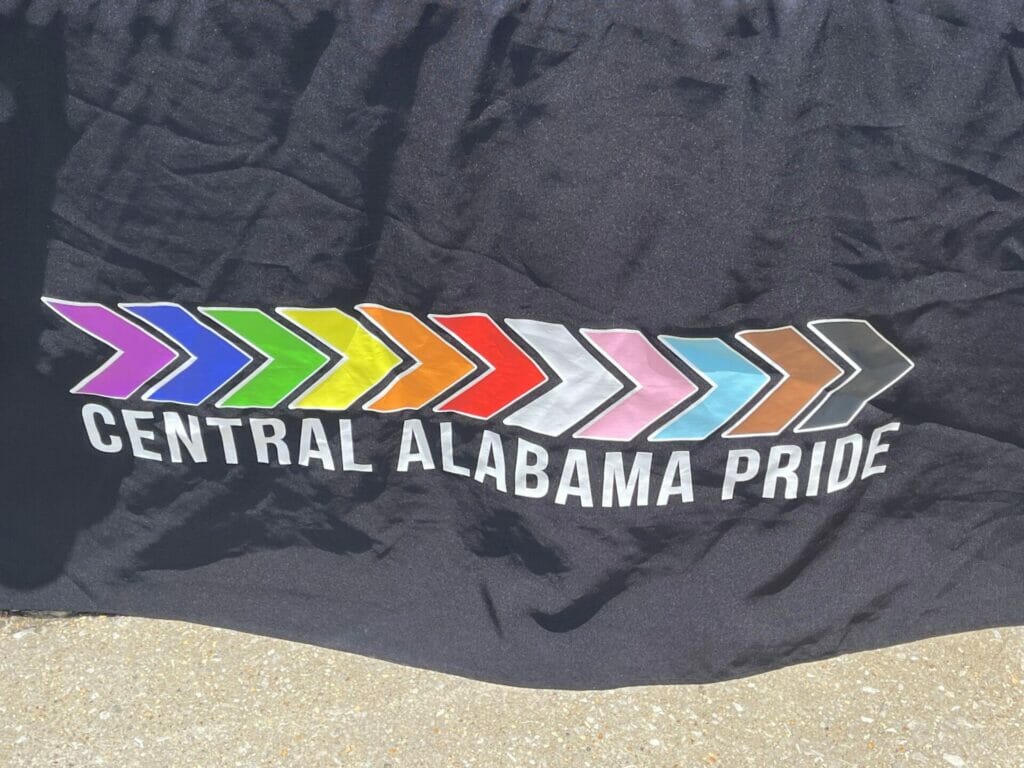With increased hostility aimed at the LGBTQ community in state legislatures across the country, to corporate and right-wing backlash for their support of LGBTQ Americans, the detractors of LGBTQ Pride Month are attempting to rebrand the annual celebration to shift public support and roll back progress on equality. Still, as Pride events continue nationwide and in conservative states like Alabama, it’s apparent detractors miscalculated the resiliency of the LGBTQ community.
With the usual national focus on large metropolitan cities during Pride Month, small-town Pride celebrations in cities like Birmingham, Alabama, barely register as a blip on the national media radar. But for 45 years, Central Alabama Pride has created visibility for the LGBTQ community in a place that has historically been unwelcoming to anyone outside of traditional Southern expectations.
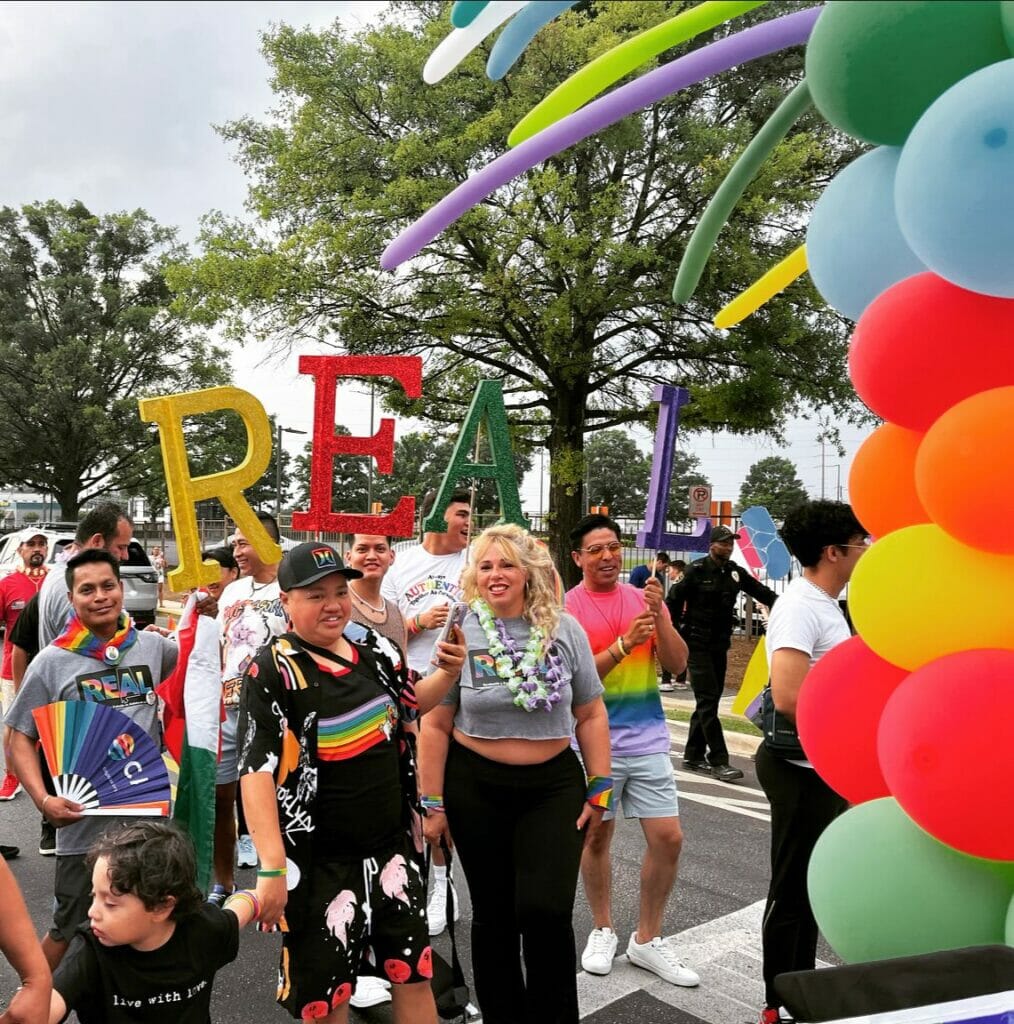
“It’s not easy to navigate Alabama,” says Jean Hernandez, Latinx Coordinator of Alabama Latino AIDS Coalition< (ALAC). “Alabama is not welcoming, but Birmingham is getting a little bit better.”
With a week-long schedule of Pride events beginning on June 1, culminating with an evening Mardi-Gras style Pride Parade through downtown Birmingham and Pridefest in Linn Park— by closing day on June 11— over 5,000 participants descended upon the city to show their support for LGBTQ Alabamians.
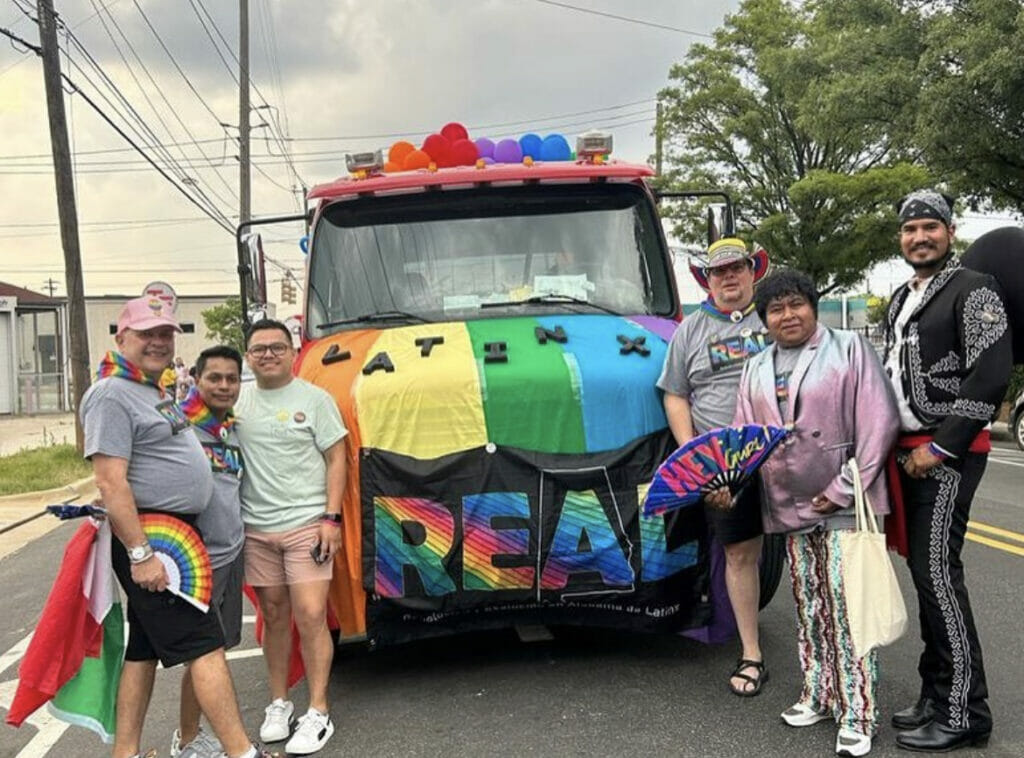
This year, Pride was significant to Hernandez and the people she serves through REAL (Revolution. Evolution. of Latinx in Alabama), a program of ALAC serving Birmingham’s LGBTQ Latinx community. REAL was honored as Grand Marshal of this year’s Pride Parade after what many of its members describe as years of invisibility.
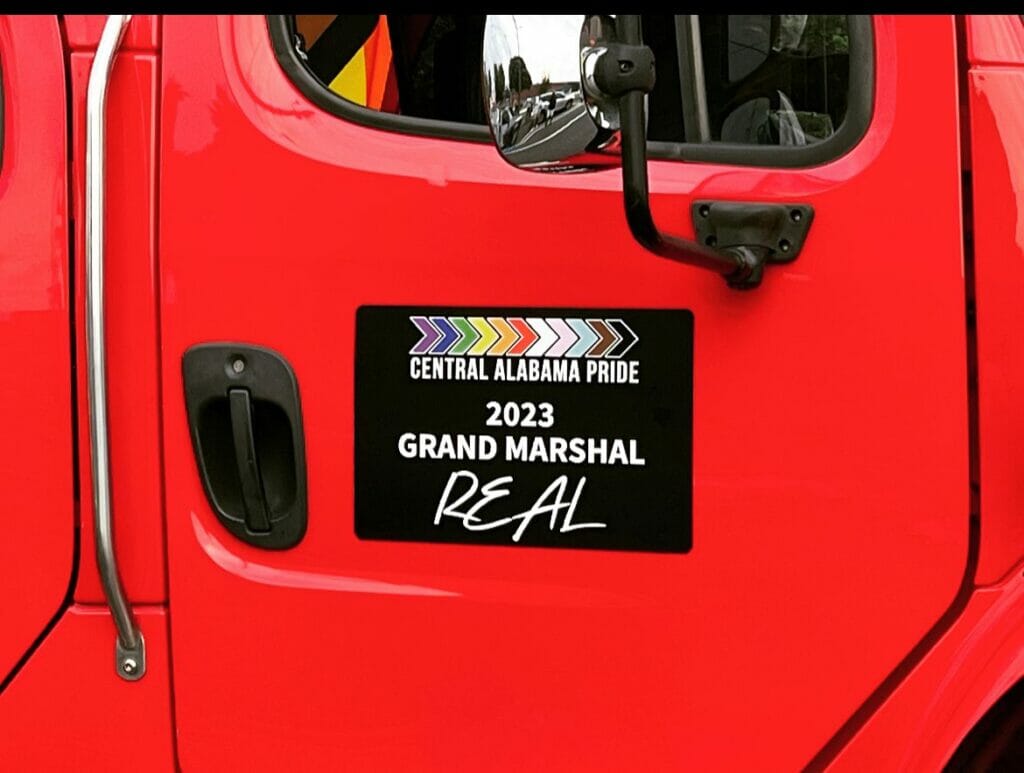
“It’s an honor because we get to represent the Latino community that has not been seen here in Alabama,” says Alexander Bautista, Program Manager for REAL.
“Last year was the first time we participated. Before that, we didn’t have any representation,” Bautista adds. “So seeing the work we’ve done and how excited people are makes me happy.”
Fluctuating between laughter and tears, Hernandez is visibly moved while reflecting on the progress of REAL and Birmingham’s Latinx community over the last year.
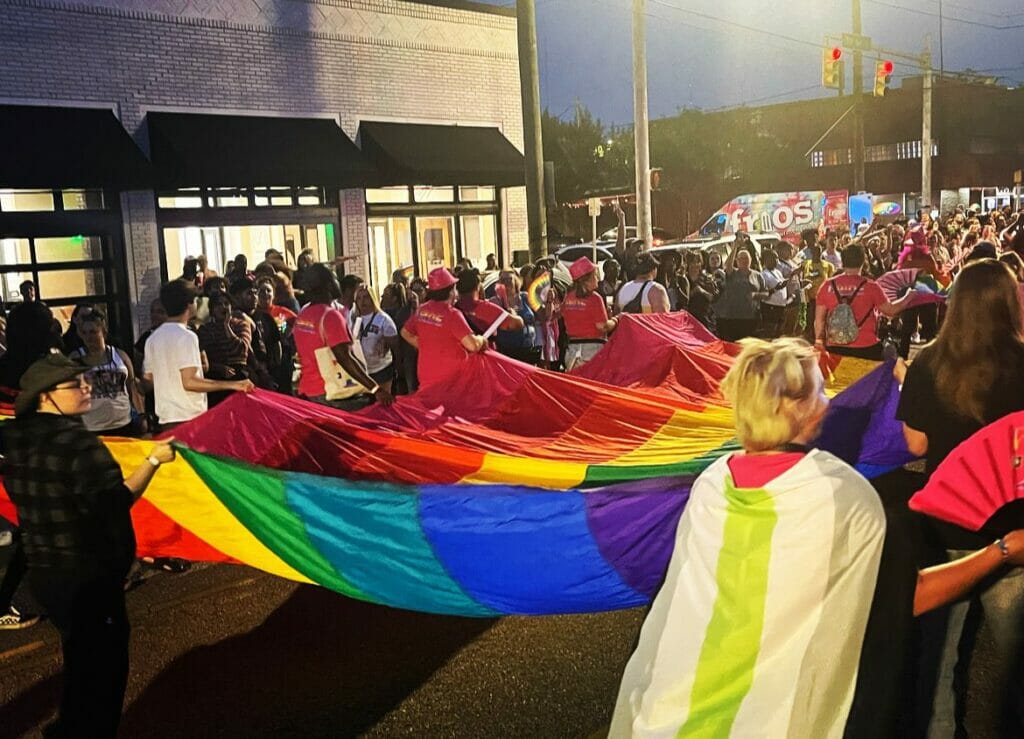
“You could see the shock on everybody’s faces,” Hernandez says of REAL’s participation in the 2022 Pride Parade. “All these Brown people with their flags and talking Spanish. The crowd was like, ‘We haven’t seen this before,’ she recalls through laughter. “We had our little pickup truck with the Mexican flag all over, and we were so proud. It was amazing! We were there in Alabama,” Hernandez adds as the gravity of the accomplishment produces tears. “And now we are one of the Grand Marshals in the parade. And this year, we’re going all in.”
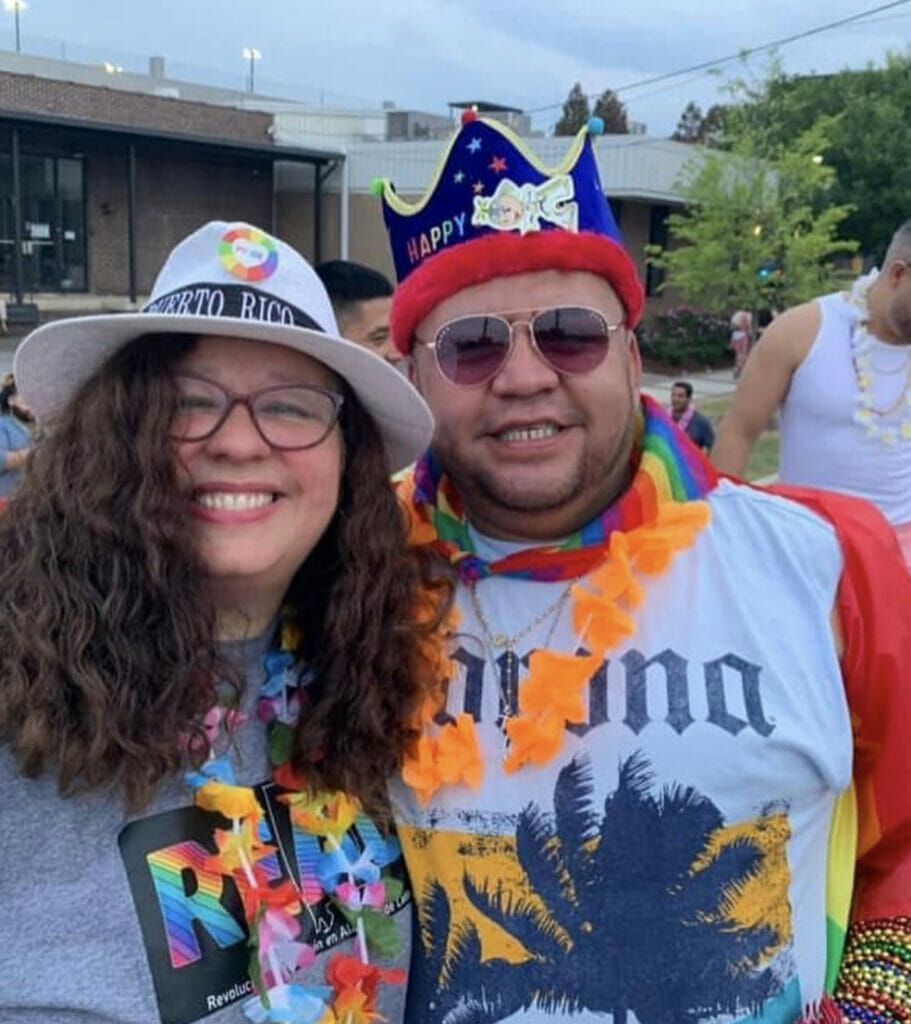
While the parade evokes dancing in the street, for REAL, the celebration signifies a year of growth, overcoming language and immigration barriers and pushing back against cultural norms to choose authenticity.
“We are beginning to see more people that trust us,” says Hernandez. “They see a safe space. And now we have people that are coming to the door if they want to do HIV testing or if they want to talk about immigration cases. We are the only [organization] in Alabama that helps with financial immigration assistance,” she says. “Our priorities are Latinos living with HIV and the LGBTQ+ community.”
Courageous Identity
Prioritizing the health of Black trans women—another marginalized community in Birmingham—is something Daroneshia Duncan-Boyd, Founder and Executive Director of TAKE (Transgender Advocates Knowledgeable Empowering) BHM Resource Center, is laser-focused on every day. The reigning Ms. Central Alabama Pride 2023, Duncan-Boyd, tells GLAAD there is a critical element of Pride that she hopes has a resurgence.
“I think people miss what Pride is really about,” Duncan-Boyd says. “They’d rather gyrate in the streets and turn up and holler—’Happy Pride’—when it’s still people in need, underserved, and without resources.”
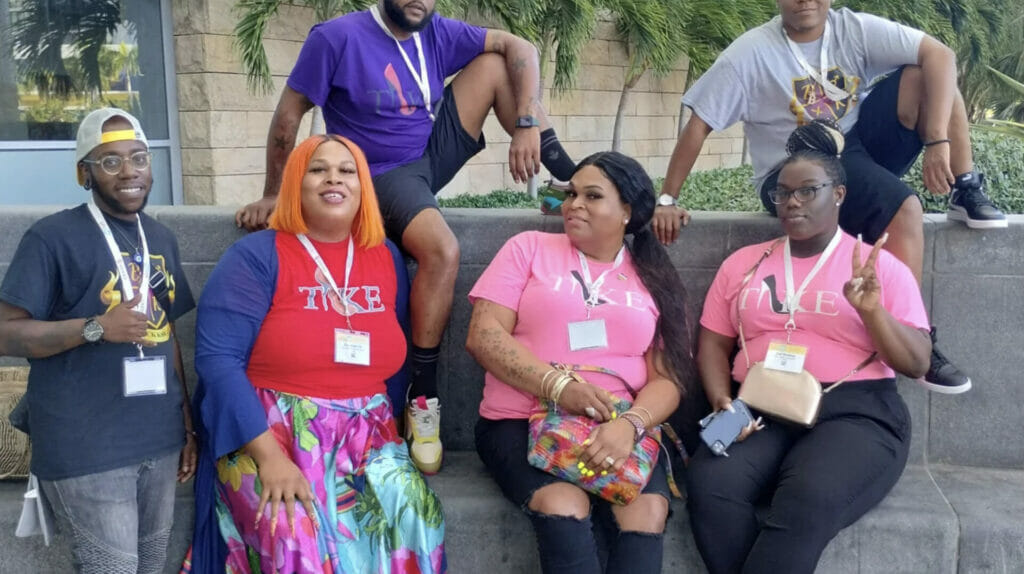
TAKE BHM Resource Center began as a peer support group and now serves upwards of 100 people as a one-stop shop with resources for the Black trans community through a holistic approach that Duncan-Boyd says is not solely focused on HIV.
“The work I’m doing is not in vain because this is my life,” Duncan-Boyd says. ‘I am Black, and I am trans. I know what my community needs. I listen, and I act on it.”
Before Duncan-Boyd created TAKE BHM Resource Center, she recalls being overlooked and discriminated against in previous jobs because of her gender identity. As she participates in this year’s celebration as Central Alabama Pride royalty, she does so in the spirit of Black trans trailblazers that came before her.
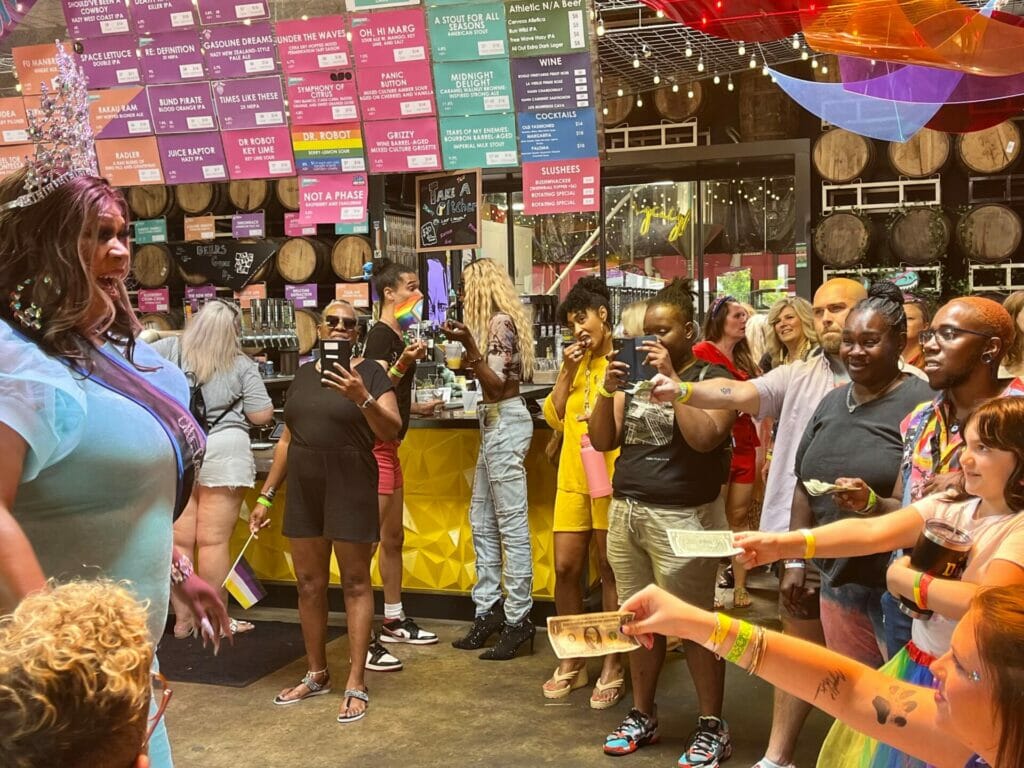
“People don’t understand our courageous identity. We show up with so much courage,” Duncan-Boyd says. “We’re gonna do it, no matter how somebody views us or what anyone says about us. We are who we are and will stand true to what we believe in.”
Anti-LGBTQ protesters were present at the lineup for Central Alabama’s Pride Parade. Still, pro-LGBTQ supporters muffled their fire and brimstone message seen on placards and heard over loudspeakers with chants of love and equality and a human shield formed to obscure their demonstration visually.
With GLAAD tracking more than 160 incidents since last year’s Pride targeting drag events, including during Pride festivities, the safety of attendees at big and small-town celebrations like Central Alabama Pride is a top priority.
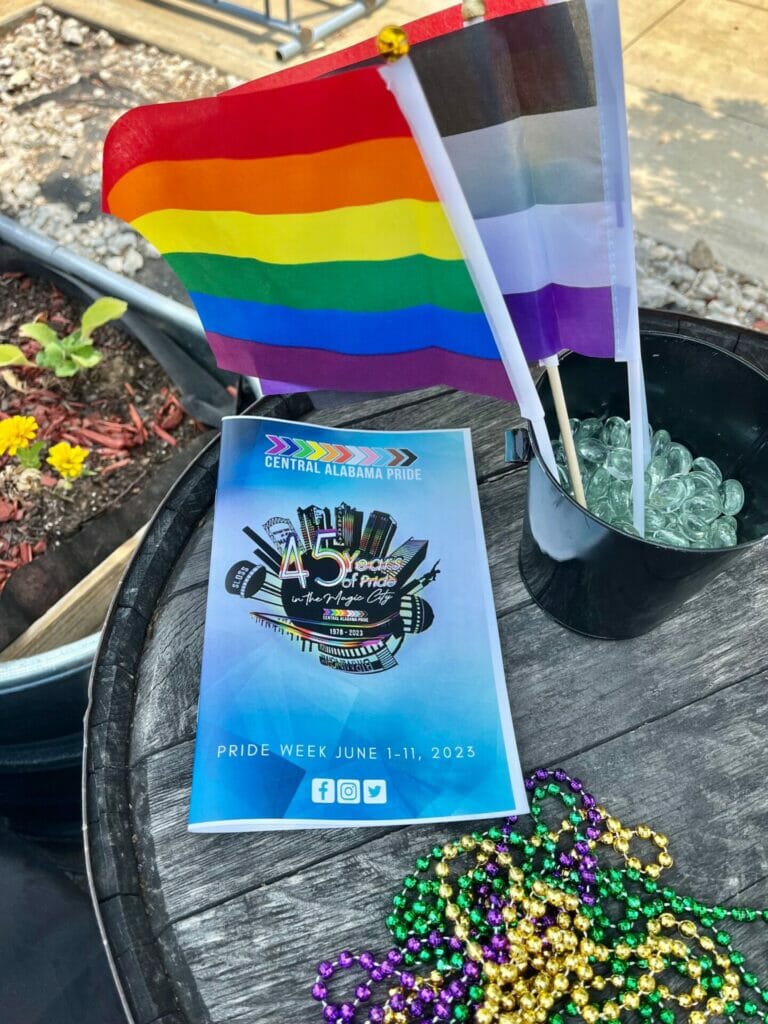
But like many people in Birmingham’s LGBTQ community, Duncan-Boyd, and REAL refuses to allow external threats to ban their queer joy.
“I serve a God that protects all. The same God that created them created us,” Duncan-Boyd says.
On Saturday, in a city with a church on every corner, all God’s children were out and celebrated, not only those who identify as straight but LGBTQ people, too.

